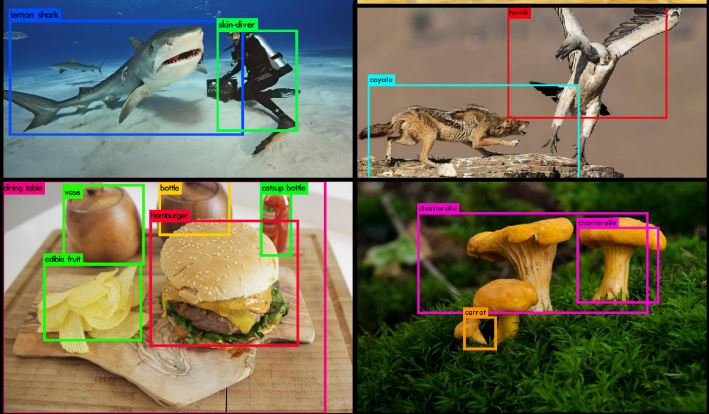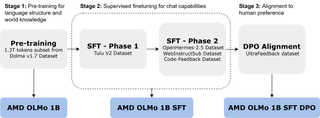Final week I used to be a visitor speaker at a society on the College of Tasmania. I used to be requested to speak in regards to the subject of Synthetic Intelligence from the attitude of faith – and extra exactly from the attitude of Christianity.
AI is shaking issues up, it appears. With all this speak about consciousness, machines acquiring rights, and even machines taking up the world, it’s no shock that this type of rhetoric has infiltrated spiritual circles as properly. As readers of my weblog know, I’ve a PhD in AI but in addition a Grasp’s in Philosophy in addition to Grasp’s in Theology so I’ve a novel understanding on these points from their totally different views. Therefore the invitation to present a chat on the major College of the coldest state of our stunning nation.
Now, I’m not right here to guage the views of faith or science. I simply wish to current their factors of view on this very broad subject. For my part it is a fascinating subject!
In my discuss I started with the beginning factors of Christianity and science. They’re totally different. Let’s begin with a abstract of how science works.
Science seems to be at empirical knowledge and after gathering sufficient of it decides to announce conclusions as soon as a degree of statistical certainty has been reached. So, for instance, with respect to consciousness, it should have a look at the exterior results of human consciousness (as a result of we’re presently the very best examples of it), analyse them, and attempt to outline consciousness this manner.
Consciousness appears to permit people:
- to make deliberate, goal-directed choices and actions,
- to speak concepts, feelings, and ideas by language, gestures, and different types of communication,
- to precise themselves by creativity,
- and rather more…
After sufficient proof of those phenomena is collected, and it seems as if most beings with consciousness possess these attributes, science will conclude, in a technique or one other, that this have to be what consciousness is. (In fact, it is a tough subject, so I’m chopping corners right here lots – however the gist is there).
Therefore, when taking a look at machines, science will try and do the identical:
- do machines look like making deliberate, goal-directed choices and actions?
- do machines seem to speak concepts, feelings, and ideas by language, gestures, and different types of communication,
- do machines look like expressing themselves by creativity,
- and the like…
Science will then (to chop a protracted story brief, once more) attain a conclusion, as soon as it feels justified to take action, that machines may really possess consciousness as a result of they’re exhibiting the behaviour of acutely aware people.
If it seems to be prefer it has consciousness, it simply may.
Now for Christianity.
Christianity has historically had a special place to begin. It first tries to outline what one thing is when it comes to its being. To do that, typically it utilises info from sources that science wouldn’t settle for. For instance, the Bible. In Genesis (the primary guide of the Bible) Chapter 1, verse 27 says: “So God created mankind in his personal picture, within the picture of God he created them”.
From this, it’s concluded that we’re distinctive creatures on this world. The standard interpretation of “being created within the picture of God” implies that now we have an mind, consciousness, and free will like God (fairly than being one other lesser god or an immaterial being). The attributes listed are “packaged” in an everlasting soul. No different creatures on this world have these distinctive attributes, particularly not entities that we create ourselves like software program applications.
So, when faith seems to be at issues like machines and the dialogue of consciousness surrounding them it should reply with one thing like this:
Simply because a machine seems to be clever doesn’t imply it is clever. It could actually exhibit the signs of consciousness all it desires. On the extent of being, fairly than empirical phenomena, it should all the time simply be a dull machine.
These are basically two totally different beginning positions that then have far-reaching penalties when it comes to conclusions. For instance:
- Will AI take over the world?
- Science: It’d.
- Faith: It could grow to be harmful however it should by no means have understanding as a result of that is basic to having a soul. Understanding, fairly than simply possessing data, goes a good distance in actions so missing this can inhibit AI immensely.
- Ought to we fear about AI having emotions?
- Science: Most likely. Have a look at how ChatGPT is already answering its questions. It’s solely a matter of time earlier than precise emotions develop.
- Faith: No probability. Simply because a machine seems to be prefer it has emotions, doesn’t imply it does.
- Will AI machines should be given particular rights sooner or later?
- Science: Possibly
- Faith: Nah. Even when AI’s talents proceed enhancing, nothing about what it basically is (i.e. a dull machine) will change.
Totally different beginning factors give totally different conclusions on essential questions, certainly. Faith argues that science limits itself by not contemplating totally different, non-empirical sources of information. In response, science contends that the veracity of those sources can’t be confirmed by scientific strategies, and thus, faith ought to maintain a lesser diploma of affect.
Battle from this could ensue between science and faith. Not likely on the extent of discoveries of fabric information about things like legal guidelines of physics or chemistry (though up to now this was not all the time the case, in fact) however extra on the extent of conclusions reached within the sphere of immaterial philosophy like “what defines a human being” or “what’s objectively or unhealthy motion” or the questions listed above.
Totally different worlds actually open up for the 2 “disciplines” from their differing beginning place. Each worlds really are fascinating and therefore why I’ve devoted half of my life to finding out each science in addition to philosophy/faith.
Hopefully this submit has helped you to see each views on this phenomenon that’s Synthetic Intelligence.
To learn when new content material like that is posted, subscribe to the mailing record:
(Be aware: If this submit is discovered on a website aside from zbigatron.com, a bot has stolen it – it’s been occurring lots recently)




